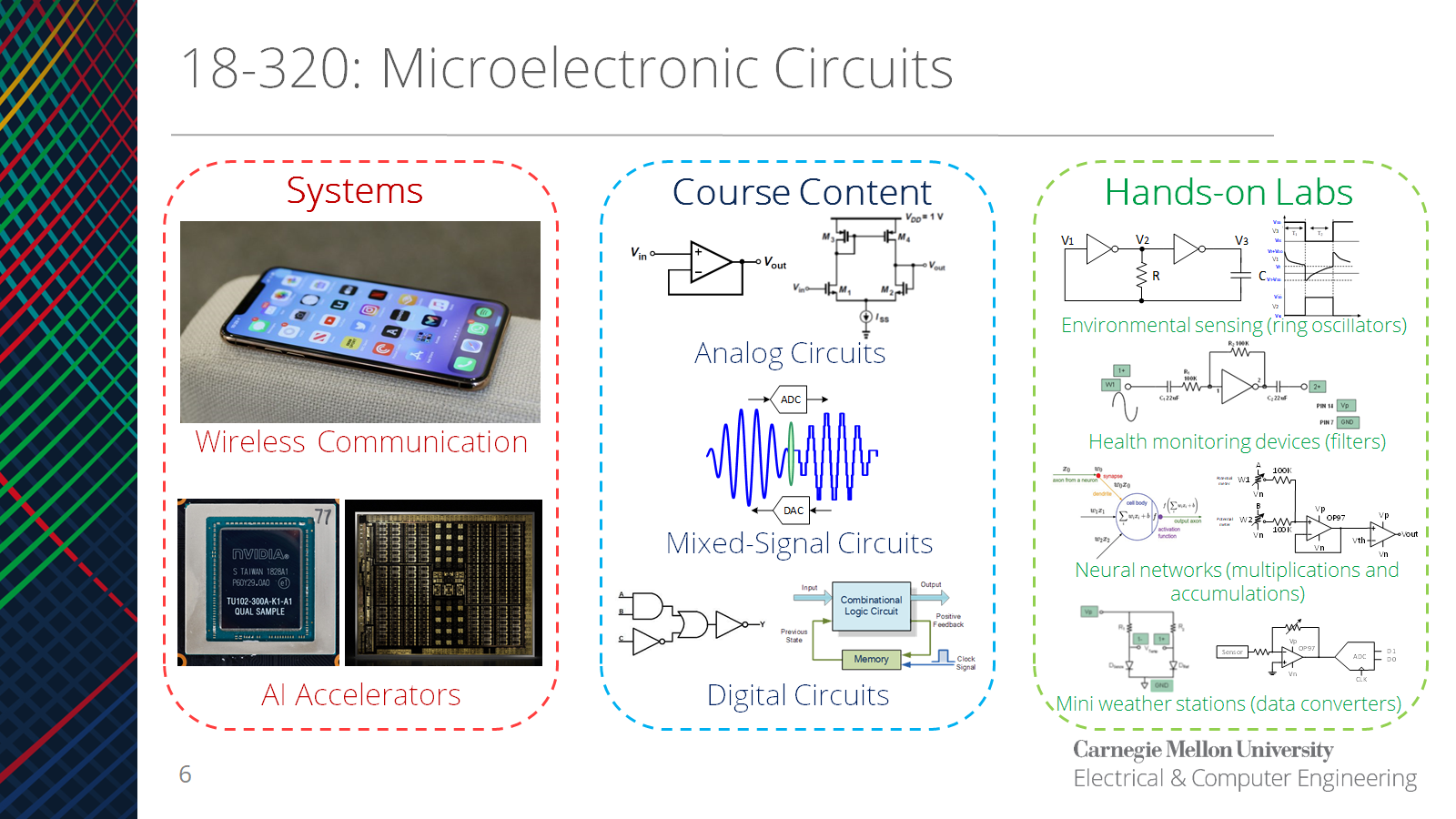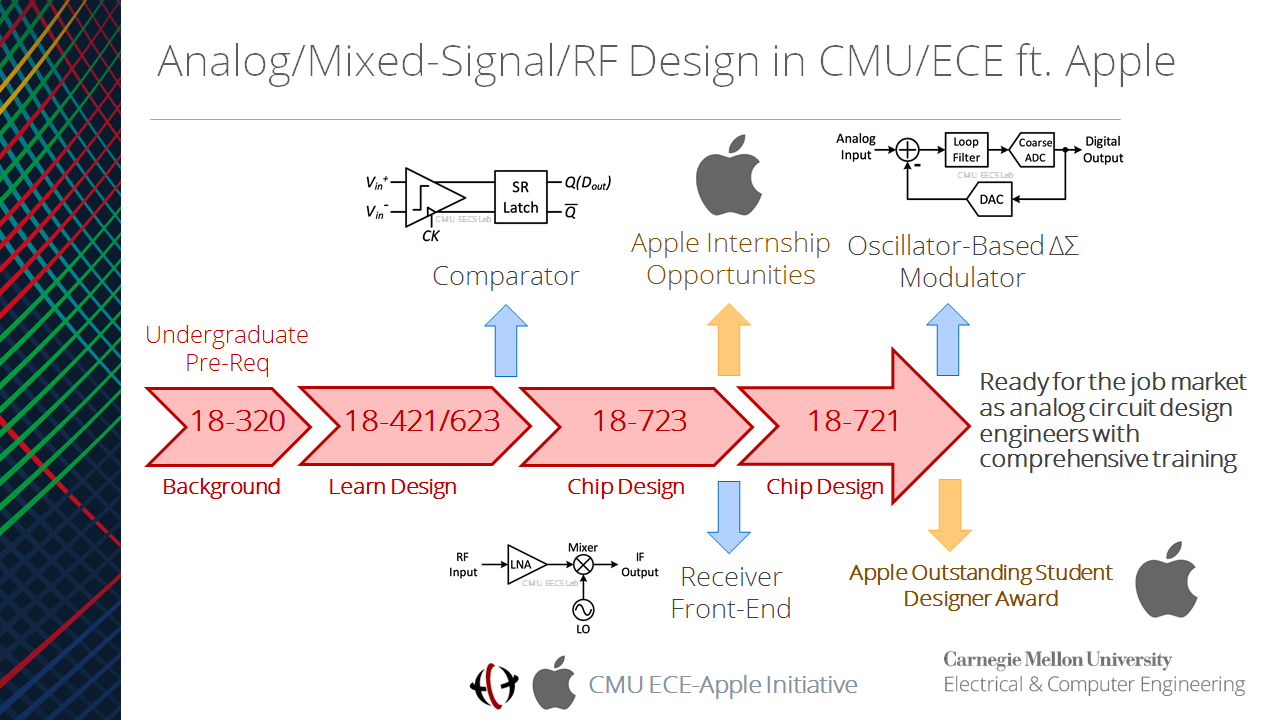
ECE 18-421/623: Analog Integrated Circuit Design – Fall
Some form of analog circuit design is a critical step in the creation of every modern IC. First and foremost, analog circuits act as the interface between digital systems and the real world. They act to amplify and filter analog signals, and to convert signals from analog to digital and back again. In addition, high performance digital cell design (either high speed or low power) also invokes significant analog circuit design issues. The goal of this course is to teach students some of the methods used in the design and analysis of analog integrated circuits, to illustrate how one approaches design problems in general, and to expose students to a broad cross-section of important analog circuit topologies. The course will focus on learning design through carrying out design projects. Design and implementation details of wide-band amplifiers, operational amplifiers, filters and basic data converters will be covered. Example topics to be covered include transistor large- and small-signal device models, small-signal characteristics of transistor-based amplifiers, large-signal amplifier characteristics and nonidealities, operational amplifier design, basic feedback amplifier stability analysis and compensation, and comparator design. The course will focus primarily on analog CMOS, but some aspects of BJT design will be discussed.
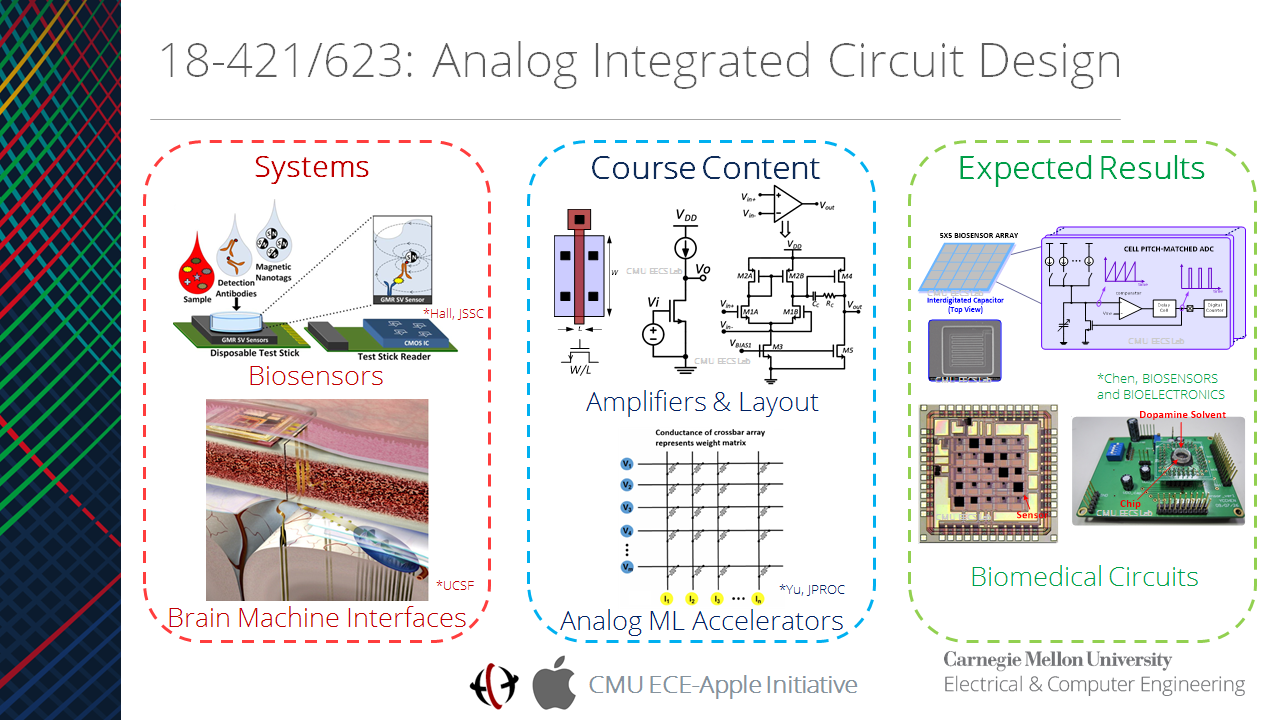
ECE 18-721: Advanced Analog Integrated Circuits Design – Spring
This course will familiarize students with advanced analog integrated circuit (IC) design issues. Analog circuit design issues play an important role in creating modern ICs. First and foremost, analog circuits act as the interface between digital systems and the real world. They act to amplify and filter analog signals, and to convert signals from analog to digital and back again. These analog interfaces appear in all communications devices (e.g., cell phones) - both to condition the "transmitted" signal and as sensitive "receivers." In addition, these analog interfaces appear in sensors (e.g., accelerometers). The goal of this course is to familiarize students with some of the advanced analog circuit design ideas that are involved in these tasks. Specific topics will include analog filtering (continuous-time and discrete-time), sample-and-hold amplifiers, analog-to-digital converters, and digital-to-analog converters.
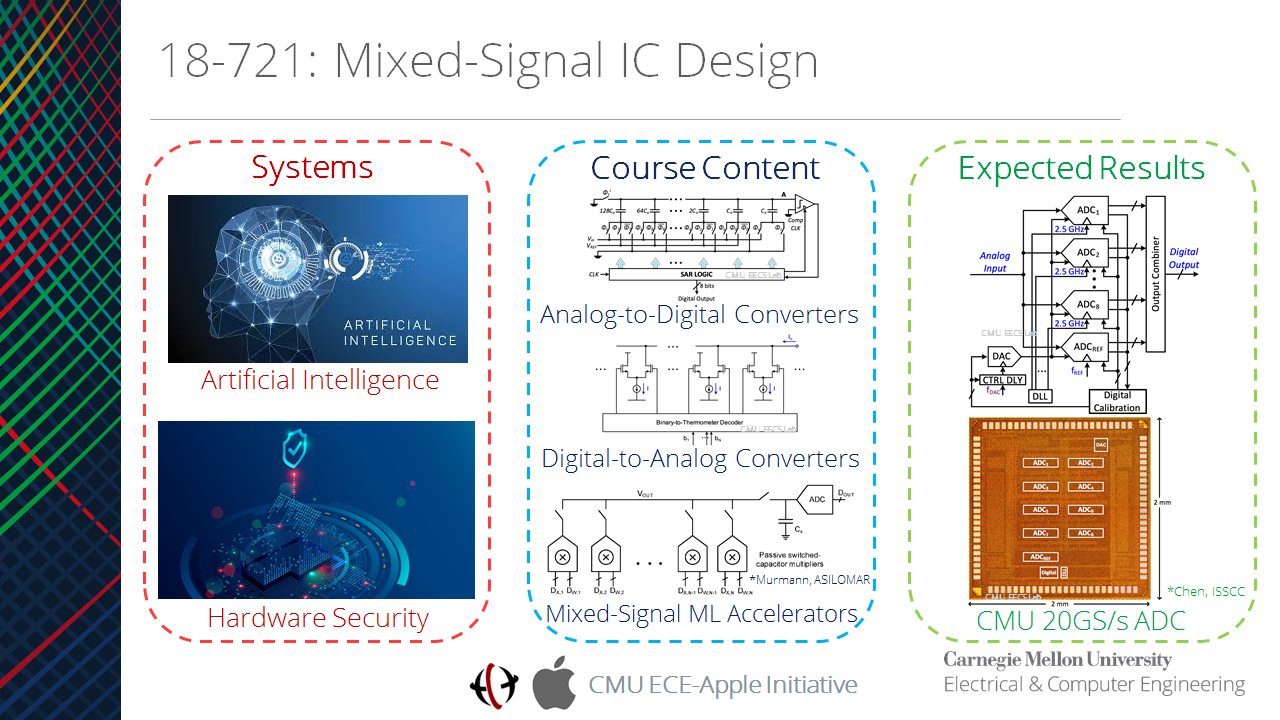
ECE 18-723: RF IC Design and Implementation – Fall
This course covers the design and analysis of radio-frequency integrated systems at the transistor level using state of the art CMOS and bipolar technologies. It focuses on system-level trade-offs in transceiver design, practical RF circuit techniques, and physical understanding for device parasitics. Accurate models for active devices, passive components, and interconnect parasitics are critical for predicting high-frequency analog circuit behavior and will be examined in detail. The course will start with fundamental concepts in wireless system design and their impact on design trade-offs in different transceiver architectures. Following that, RF transistor model, passive matching networks will be discussed. Noise analysis and low-noise amplifier design are studied next. The effects of nonlinearity are treated along with mixer design techniques. Practical bias circuit for RF design will be illustrated. Then, the importance of phase noise and VCO design will be considered together. The course will conclude with a brief study of frequency synthesizer and power amplifier design. Senior or graduate standing required.
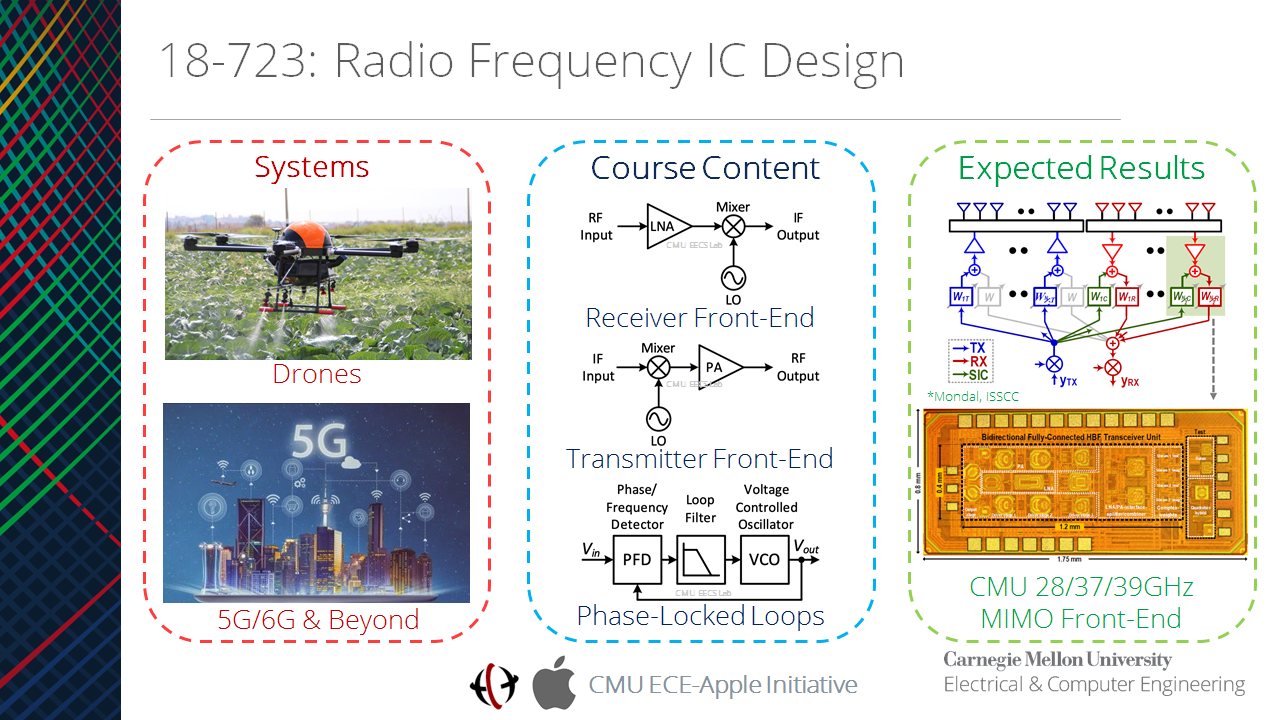
ECE 18-220: Electronic Devices and Analog Circuits – Spring
This course covers fundamental topics that are common to a wide variety of electrical engineering devices and systems. The topics include an introduction to semiconductor devices and technology, DC circuit analysis techniques, operational amplifiers, energy storage elements, sinusoidal steady-state response, frequency domain analysis, filters, and transient response of first- and second-order systems. The laboratories allow students to use modern electronic instrumentation and to build and operate circuits that address specific concepts covered in the lectures, including semiconductor devices and sensors, layout, operational amplifiers, filters, signal detection and processing, power converters and circuit transients. 3 hrs. lec., 1 hr. rec., 3 hrs. lab.
